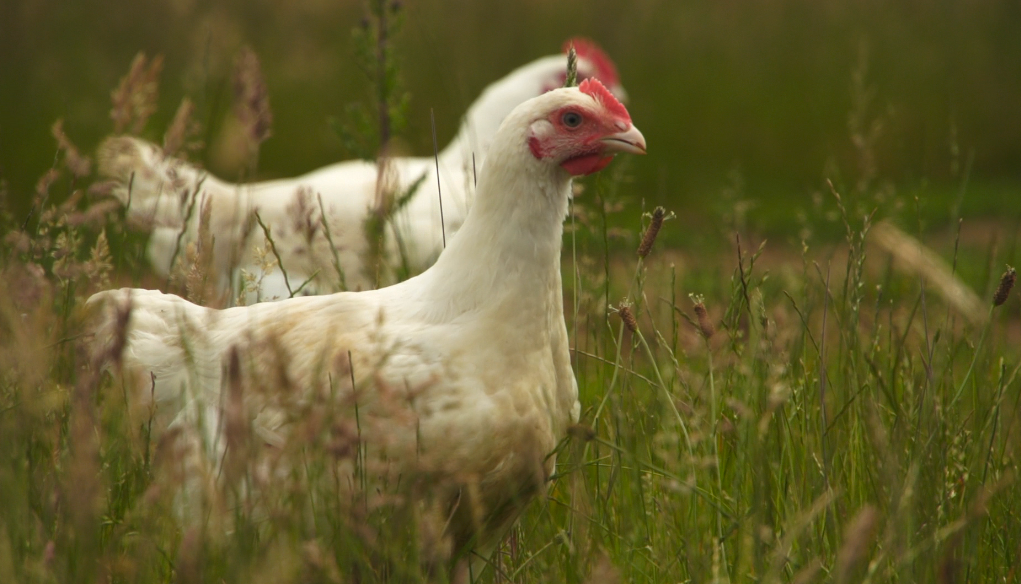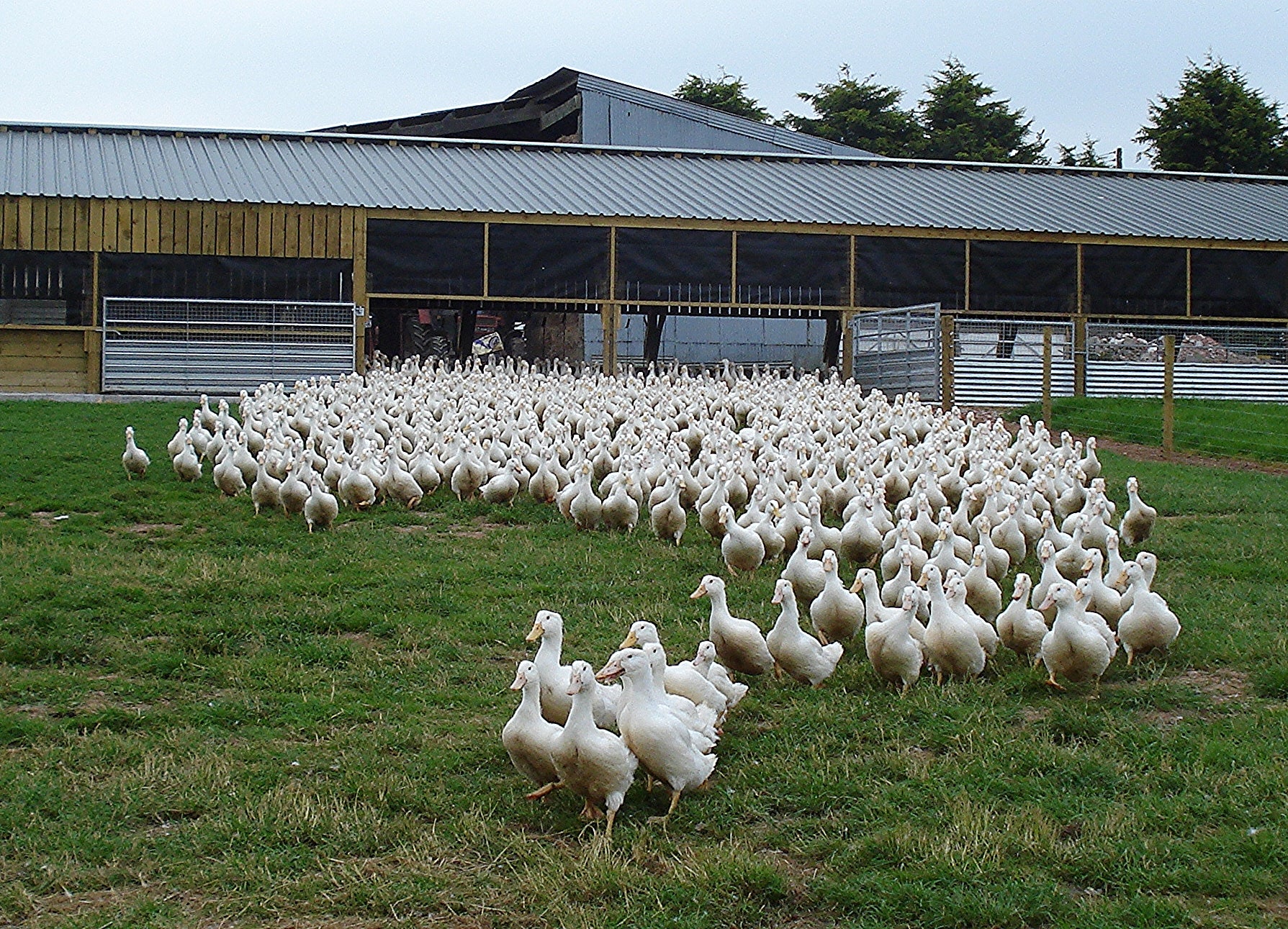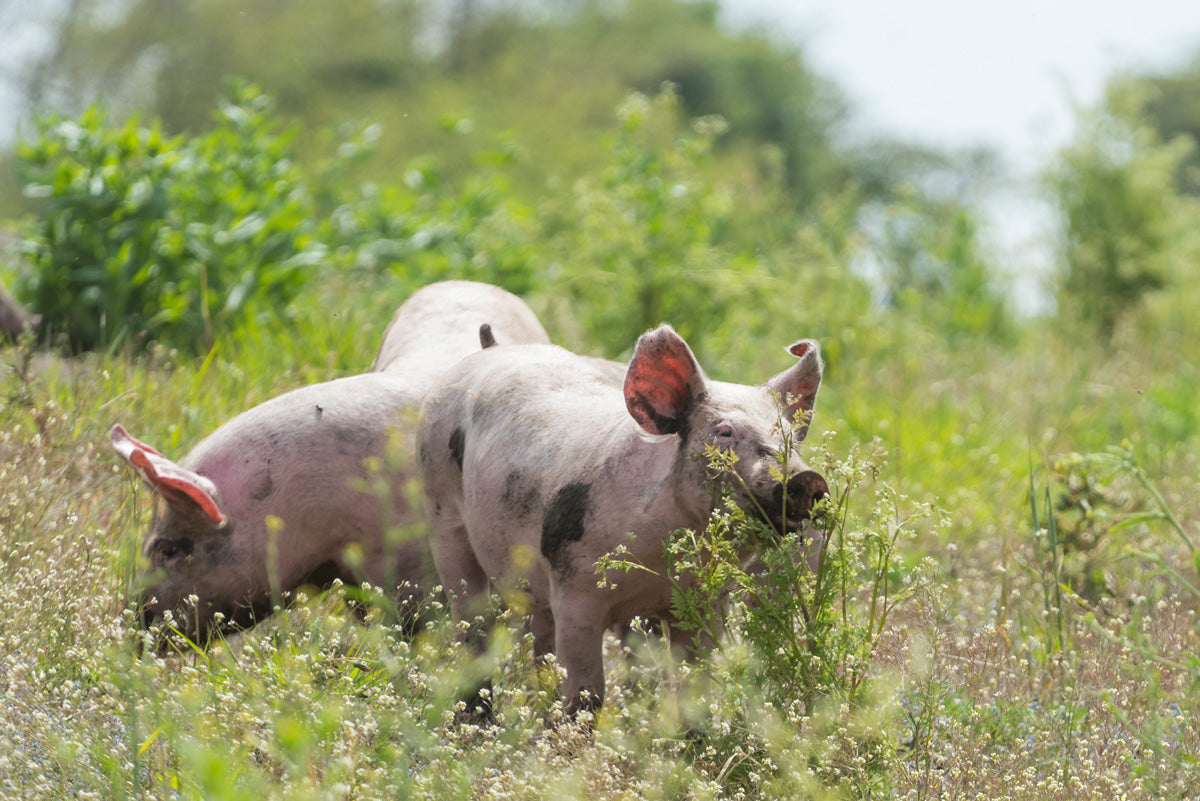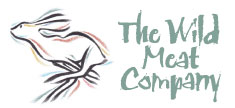The Importance of “Meat Consciousness”
by Robert Gooch May 13 2021
Here at the Wild Meat Company, we passionately believe that completely cutting meat out of our diets isn’t the best solution for the planet, animals or our health. Instead, we’d like more people to develop greater “meat consciousness”, as we explain in this article.

The rise of veganism
In the UK, the number of people becoming vegan or vegetarian has risen steeply. From small numbers a decade ago, a February 2021 survey conducted by comparison site Finder.com found that around 14% of adults (7.2 million) were currently following a meat-free diet, with a further 12% (6.5 million) saying they intended to become vegetarian, vegan or pescatarian this year.
Surveys have shown that concerns about animal welfare were behind the majority of people’s decisions to stop eating meat, closely followed by health and environmental concerns. But is it possible keep eating meat while caring about animals, our health and the environment? We think so – and this article explains why.
Less and better
As the world’s population continues to grow, there’s no doubt that the amount of meat people eat has to decrease. The low price of meat in supermarkets has enabled people to consume much more than most of our grandparents could ever afford. A chicken would have been a treat to many in past generations, and one bird would have been stretched out to at least two meals for the family as well as a stock for a third. It was not a plastic-packaged product shaped into nuggets or indiscriminate tasteless lumps in a microwaveable ready-meal. People were much more connected to what they were eating and savoured its full natural flavour, rather than assuming they should be able to eat it every day.
The intensive production of meat and poultry to be sold in bulk at rock bottom prices isn’t sustainable. However, like many leading scientists, including Harvard professor Walter Willet, who devised the Eat-Lancet Commission’s "planetary health diet', and Professor Nigel Scollan, Director of the Institute for Global Food Security at Queen's University Belfast, we believe that high-welfare sustainably produced meat and game can and should be included in a healthy balanced diet. It needs to be consumed in smaller quantities than many people currently enjoy but that doesn’t mean it shouldn’t be eaten at all.
Indeed, even Chiara Vitali, Greenpeace UK’s Forests Campaigner, says “it doesn’t have to be about every one of us going completely vegan…” Greenpeace is one of 60 organisations involved in the Eating Better alliance, which is working to stimulate a reduction in meat and dairy consumption and a transition to ‘better’ meat and dairy. Their motto, ‘less and better’, is our message too.
Not all meat is equal
As the Eating Better alliance states, not all meat is equal. We should all be thinking about where and how animals are reared or live – but when people pick up items in the supermarket they are disconnected from the food production process. It is understandable, therefore, that people who are worried about animal welfare and the impact of meat production on the climate may wonder whether the best option is to stop eating meat altogether. However, as people who enjoy abundant sustainable wild game and free-range meat and poultry produced by farmers who care deeply about the welfare of their animals and the environment, we would love to see people reconnect with food and opt for ‘less and better’ instead.
As Eating Better says:
“An approach favouring much smaller amounts of meat and dairy produced ‘better’ has the potential to help restore balance to our diets and farming landscapes. We need a shift from intensive, very impactful forms of livestock production that rely on high amounts of inputs to farming fewer animals in tune with nature.
‘Better’ meat and dairy comes from animals reared within healthy ecosystems, favouring more natural diets from sustainable sources, in well managed farms that deliver high standards of animal welfare. Farming in this way helps to maintain good soil health and fertility for crop production, manage landscapes and support biodiversity whilst delivering a smaller volume of high quality meat and dairy products.”
Meat consciousness
If you want to feel confident that the meat you eat has been reared in a natural, healthy, sustainable and high-welfare way, you’re unlikely to find the answers you need in the supermarket. You need information about the farm it came from, how the animals are reared, what conditions they live in and what they are fed. You can find this information about our meat on our website and if you have any further questions, you can contact us via the telephone number or email address at the top of every page.
Supermarket shoppers often rely on quality assurance certifications, such as Red Tractor, when making purchasing decisions. These provide assurance on traceability but a greater level of consciousness is required to ensure that the meat you are buying meets the welfare and environmental standards you are comfortable with.
Our Meat
Here at the Wild Meat Company, we sell game as well as carefully selected free-range meat and poultry from local, trusted farms.
Our wild venison is sourced locally from Suffolk’s large wild deer population, making it a highly ethical and climate-friendly red meat option, as we explain in more detail in this blog. Our locally sourced wood pigeon, wild rabbit and squirrel are also highly sustainable options with low carbon footprints, being species with populations that need to be managed.
Our free-range chicken is sourced from our near-neighbours Sutton Hoo Chicken, who are passionate about high welfare and rear their birds slowly, the traditional way. And our free-range duck is produced by Creedy Carver, whose ducks also enjoy a healthy, natural life on a family farm in Devon.

Our grass-fed beef comes from the Styles family, whose small family farm has remained unchanged since the Second World War. With lots of small fields, split into a patchwork of grassland, arable and woodland, the farm is a wildlife oasis in the middle of Norfolk. Our free-range lamb comes from the Eglington’s family farm near Eye in Suffolk, where sheep enjoy stress-free days out on their pastures. And our pork is produced by Blythburgh Free Range Pork, whose pigs are born outside and spend their entire lives outdoors rooting around in sandy Suffolk soil, enjoying 80 times more space than conventionally reared pigs. Only 3% of the UK’s pigs are lucky enough to spend their entire lives outdoors like this. The majority are reared in indoor-farming systems, for which straw bedding is not even a requirement for the pork to be given the Red Tractor scheme label.

Waste less – and enjoy
As well as choosing to enjoy wild meat or meat produced by our conscientious producers, we should all also ensure that no meat we buy is ever wasted. Take a tip from previous generations and use the bones and carcasses to create tasty stocks for vegetable-filled soups and casseroles – and savour every mouthful. Meat that has been produced more sustainably and ethically has the advantage of being much more flavoursome than its intensively produced counterparts – so when you do make the conscious decision to enjoy it, it will be the tastiest meat you’ll ever eat!

